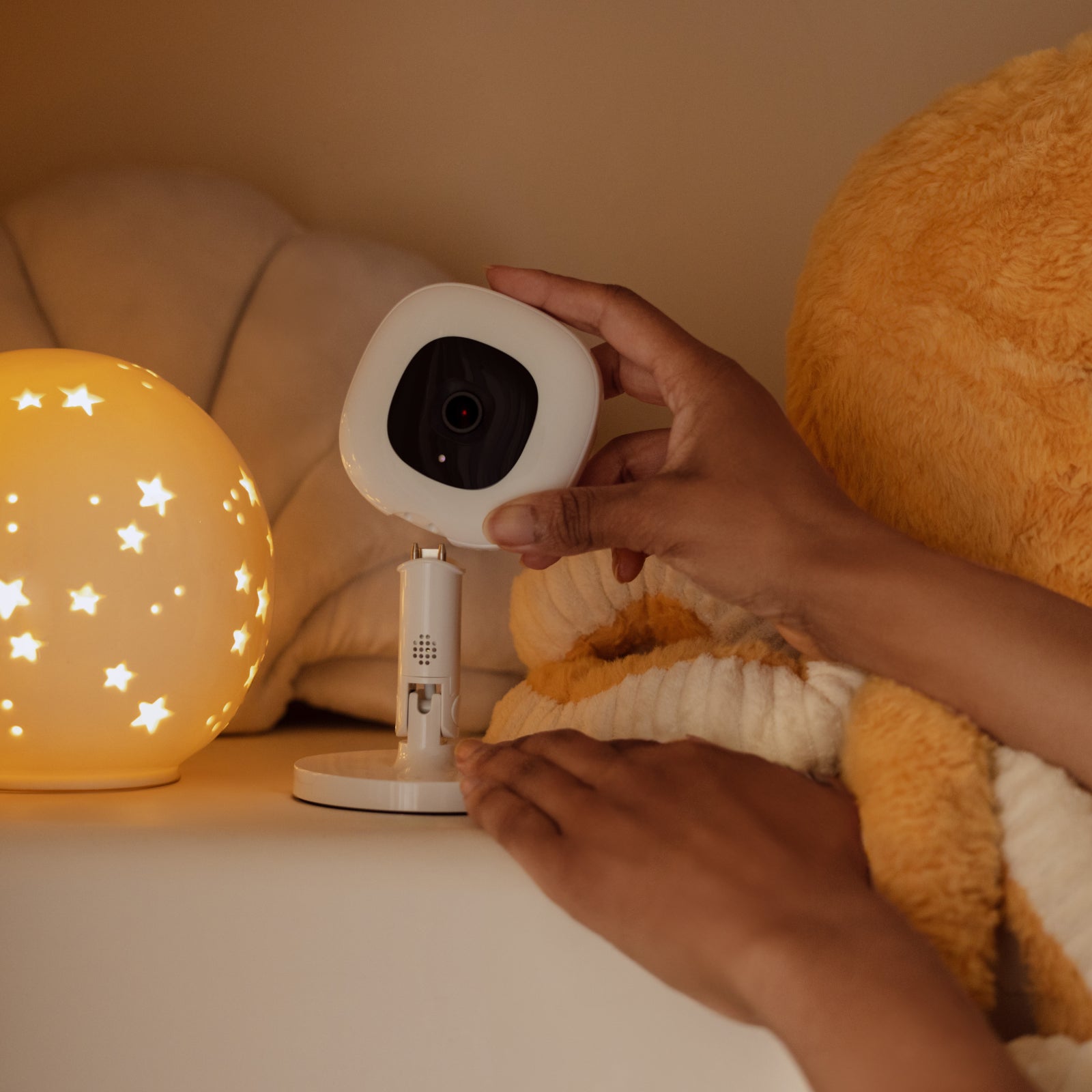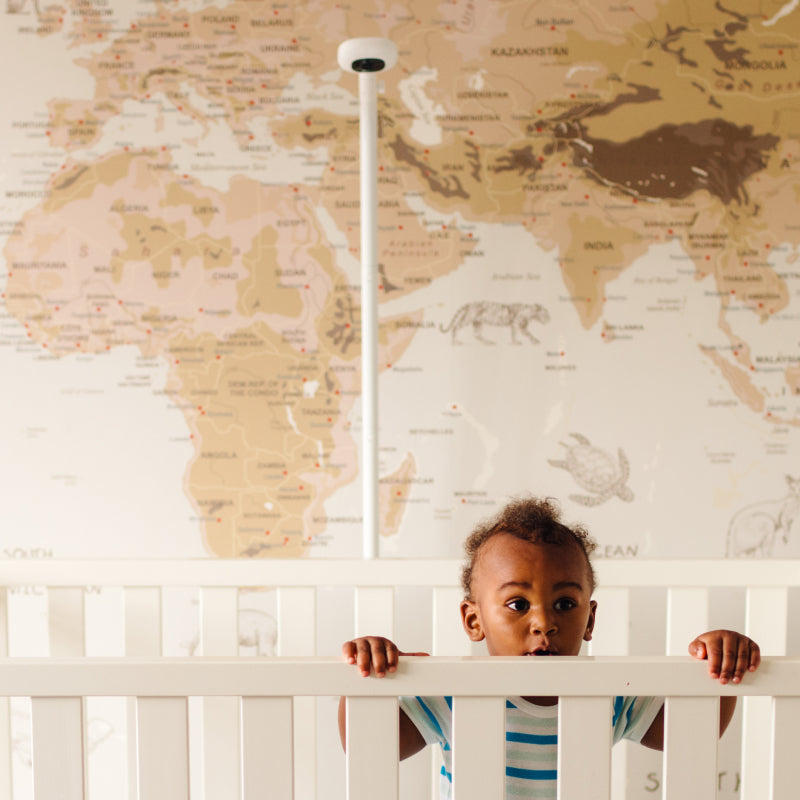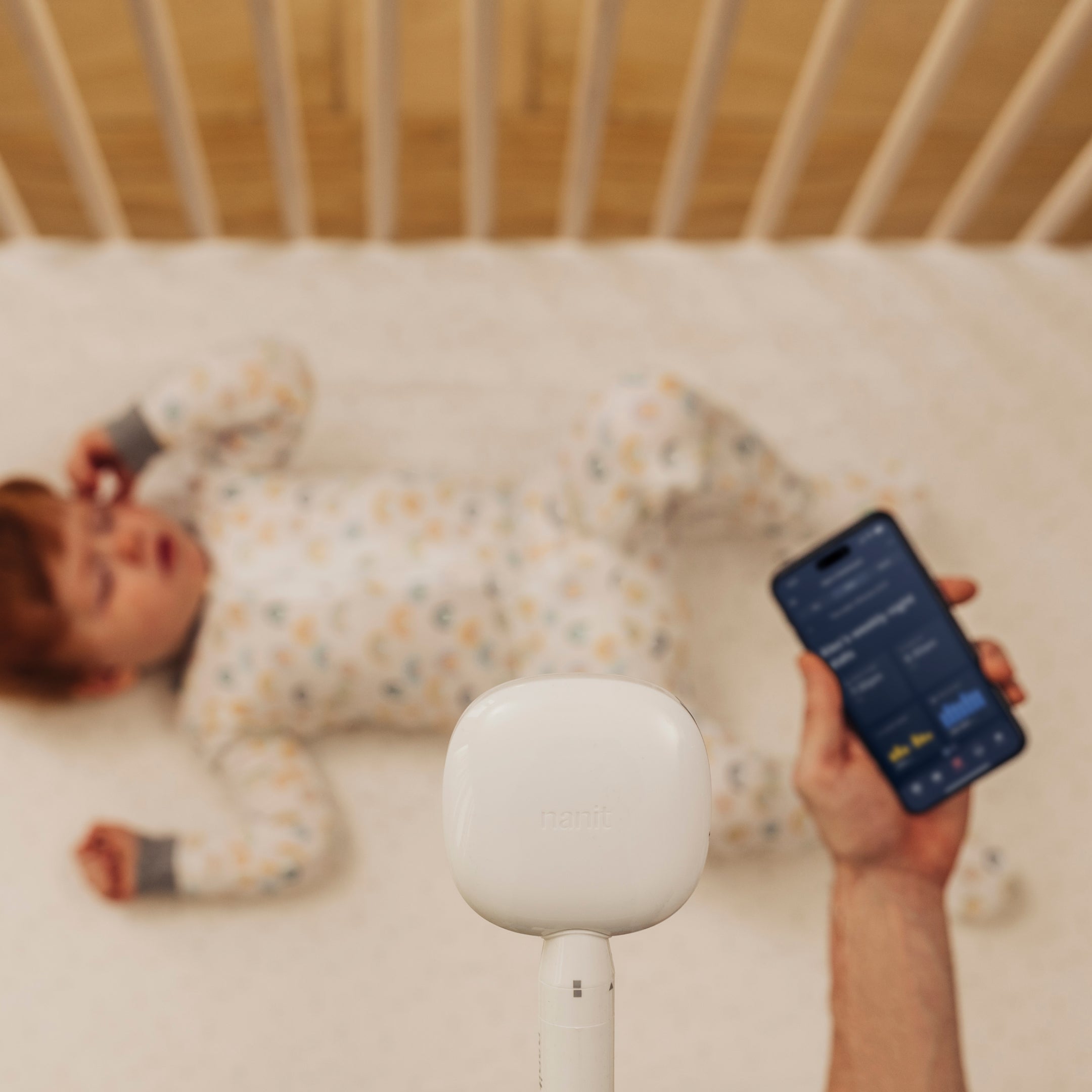Shambhavi Thakur, Daniela Macia, Mirella Dapretto, Monica Ordway, Maristella Lucchini, Natalie Barnett
Presented at the International Pediatric Sleep Association Conference, Glasgow, 2024
Introduction
Infant sleep plays a crucial role in overall development and well-being. Research indicates that longer sleep duration is associated with better infant health and development and early bedtime is one strong predictor of longer total sleep duration1,2. Fewer studies, particularly utilizing objective sleep measures, have focused on bedtime variability and its effects on infant sleep. Our study aimed to investigate the relationship between timing and variability of bedtime and infant sleep duration and parental perceptions of their child’s sleep.
Materials and Methods:
This study was approved by the Institutional Review Board of the University of California, Los Angeles. A total of 405 parents of infants aged 6-12 months (8.63 ± 1.99) residing in the US participated in this study, with 70.3% being mothers. Parents completed the Brief Infant Sleep Questionnaire-Revised (BISQ-R), reporting bedtime routines and parent behavior around infant sleep. Objective measures of infant total sleep time at night (TST), bedtime (BT), and bedtime variability (standard deviation of bedtime-BTV) were collected using Nanit autovideosomnography over a 14-night period preceding the survey date. Multiple linear regression analysis, with TST as the outcome, was conducted, incorporating BT, BTV as predictors, while controlling for infant age and gender. Multinomial logistic regression was also employed to determine the relationship between parents’ perception of how well their child sleeps at night and BTV less than 30 minutes compared to more than an hour.
Results
Infants with an objective BTV of more than an hour had a TST of 24.96±8.58 min less than those with a BTV of 30 mins or less (ϐ = -0.392, p<0.001). Infants with an average objective BT before 8 pm, had a TST of 39.96±5.82 min (ϐ = -0.678, p< 0.001) more than those with an average BT between 8-9PM, and 88.14±10 min (ϐ = -1.475, p< 0.001) more than those having BT after 9PM. Parents with infants having an objective BTV of more than an hour were 78% less likely to perceive their child sleeping 'Very/Fairly Well” compared to those who had an objective BTV of less than 30 minutes (p =0.0276).


Conclusion
We found that high objective BTV and later BT are negatively associated with infant TST. Our study underscores the importance of consistent and early bedtimes in fostering healthy sleep
habits in infants. It also sheds light on the significant relationship between bedtime variability and parental perception of infant sleep and more work needs to be done to better understand this relationship. A limitation of this study was its cross-sectional design. Future research should collect longitudinal data, to understand causal pathways and the long term implications of high bedtime variability.
References
- Mindell JA, Williamson AA. Benefits of a bedtime routine in young children: Sleep, development, and beyond. Sleep Med Rev. 2018 Aug;40:93-108. doi: 10.1016/j.smrv.2017.10.007. Epub 2017 Nov 6. PMID: 29195725; PMCID: PMC6587181.
- Fiese BH, Cai T, Sutter C, Bost KK. Bedtimes, bedtime routines, and children's sleep across the first 2 years of life. Sleep. 2021 Aug 13;44(8):zsab045. doi: 10.1093/sleep/zsab045. PMID: 33624804.
About the researchers
The authors include Shambhavi Thakur, Daniela Macia, Mirella Dapretto, Monica Ordway, Maristella Lucchini, and Natalie Barnett.
-
Shambhavi Thakur serves as Clinical Research Data Analyst at Nanit. She holds a Masters degree in Health Informatics and Life Sciences. She oversees the research collaborations with various universities and analyzes sleep data for internal as well as external studies.
-
Dr. Monica Ordway’s NIH-funded program of research is focused on the understanding of the biosocial relationships that determine health and development in early childhood. Her expertise in community-based participatory research, innovative and non-invasive biomarkers of stress, and objective sleep measurement has helped to generate new knowledge about the role of the multidimensional constructs of sleep health in mitigating the risk of toxic stress among infants and toddlers who experience adversity. Prior to completing her PhD and a postdoctoral fellowship at Yale University, she worked as a primary care pediatric nurse practitioner for 10 years in a large urban practice. She continues to work as a nurse practitioner at the Yale Pediatric Sleep Clinic.
-
Dr. Maristella Lucchini serves as Senior Clinical Researcher at Nanit. In her role, Maristella works to secure grant funding in collaboration with Nanit’s university research partners and supports the development of the company’s research collaborations around the world. Previously, Maristella served as an Assistant Research Scientist in the Division of Developmental Neuroscience, Department of Psychiatry at Columbia University Irving Medical Center where she led projects across several cohorts focusing on sleep health for pregnant and postpartum women and their children. Maristella’s research focused on underserved communities and sleep health disparities in the perinatal period. During her years as a postdoctoral researcher at Columbia University Irving Medical Center in the Department of Psychiatry, Maristella was selected to participate in the American Academy of Sleep Medicine Young Investigator Research Forum. She holds a Ph.D. in Biomedical Engineering from Politecnico di Milano.
- Dr. Natalie Barnett serves as VP of Clinical Research at Nanit. Natalie initiated sleep research collaborations at Nanit and in her current role, Natalie oversees collaborations with researchers at hospitals and universities around the world who use the Nanit camera to better understand pediatric sleep and leads the internal sleep and development research programs at Nanit. Natalie holds a Ph.D. in Genetics from the University of New England in Australia and a Postgraduate Certificate in Pediatric Sleep Science from the University of Western Australia. Natalie was an Assistant Professor in the Neurogenetics Unit at NYU School of Medicine prior to joining Nanit. Natalie is also the voice of Nanit's science-backed, personalized sleep tips delivered to users throughout their baby's first few years.
































